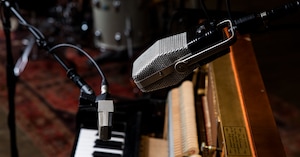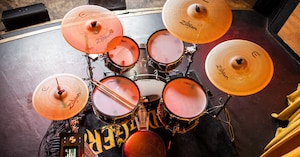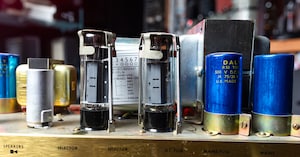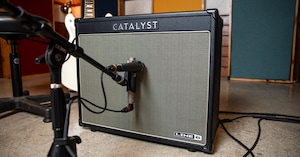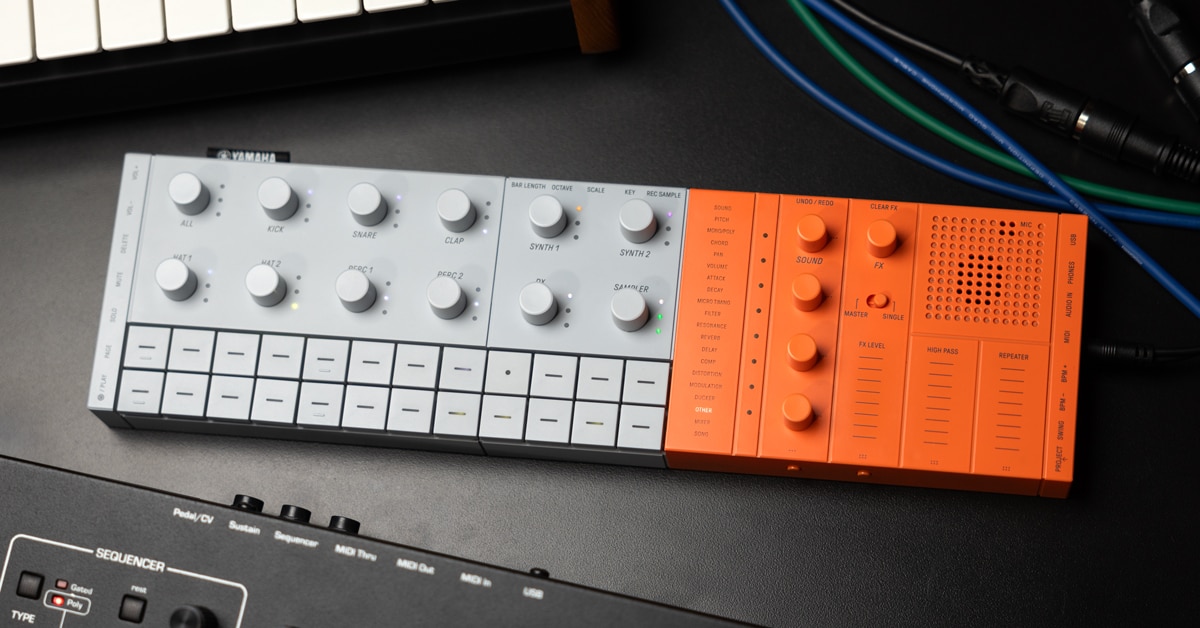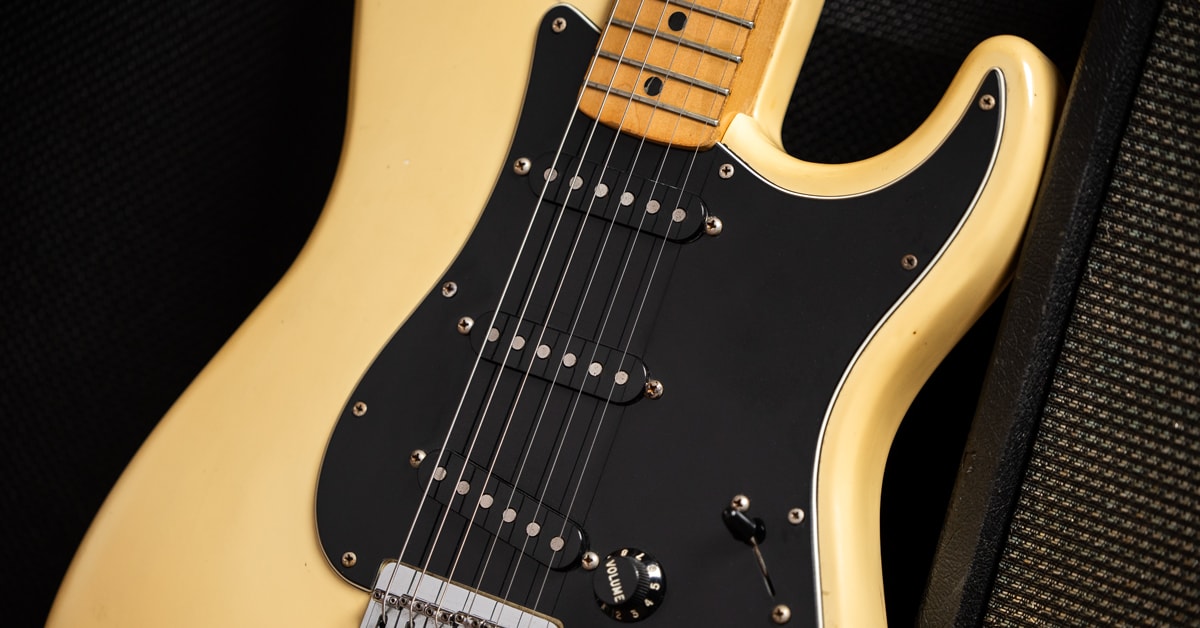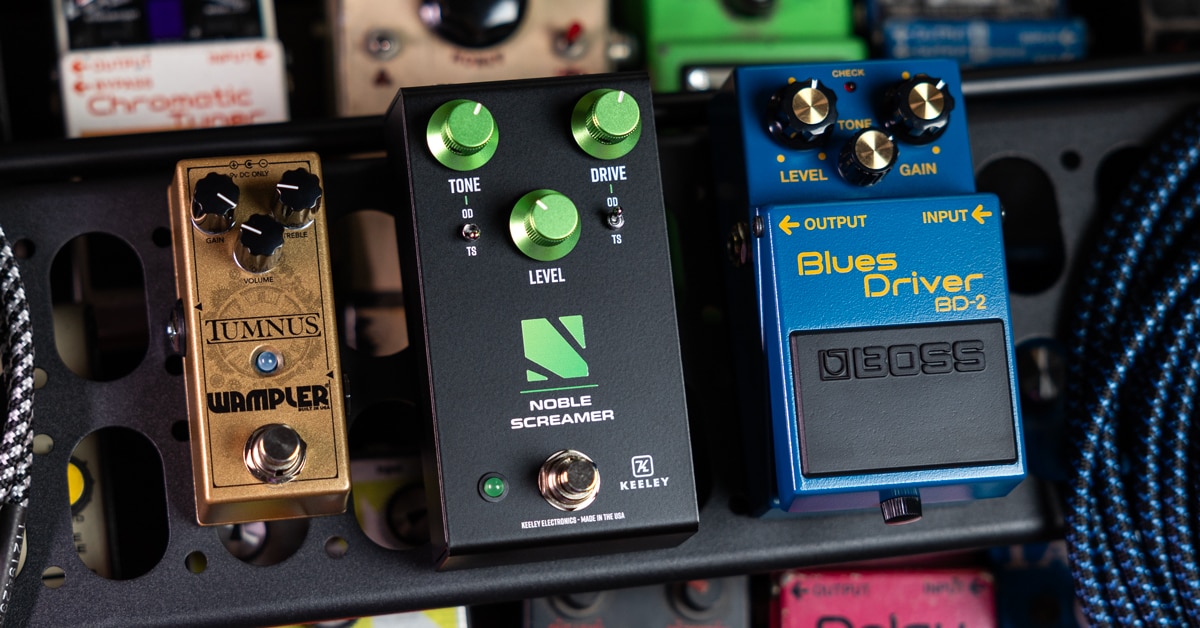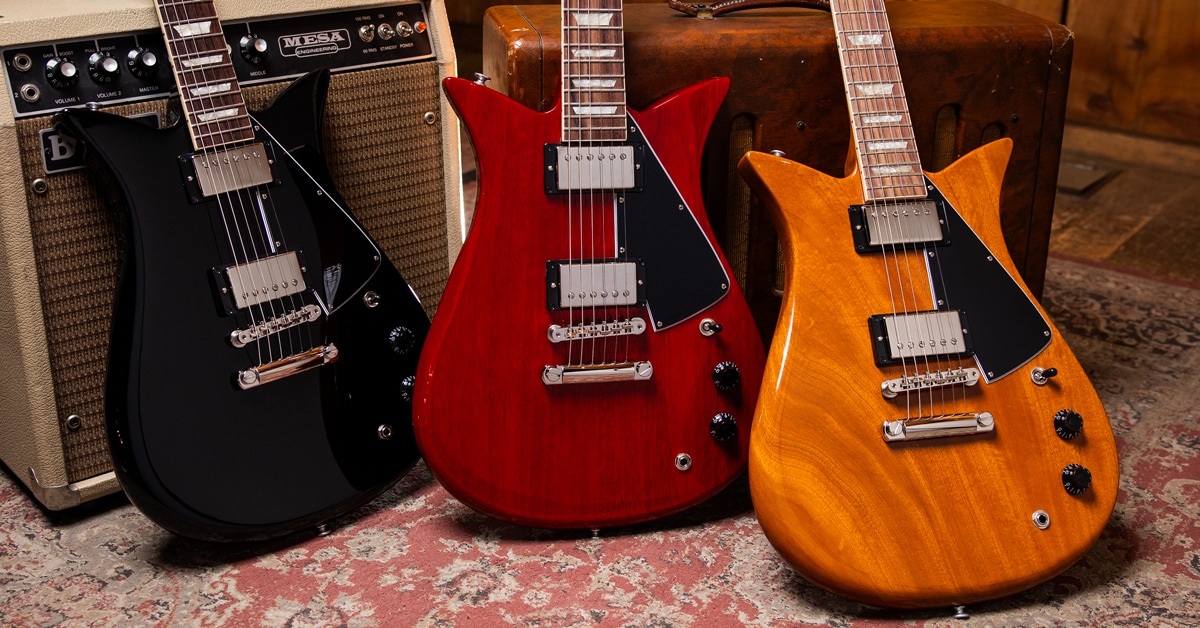Be Heard: Guitar Center is celebrating artists, brands and organizations that are using music to raise awareness on critical issues facing us all, to help us heal, to bring us together—to make the world a better place.
Photo by Jim Newberry for Rewire.org.
Jail Guitar Doors is an independent initiative founded by singer-songwriter Billy Bragg to provide instruments to aid in the rehabilitation of prison inmates. The story of Jail Guitar Doors unfolds like the plot of a movie, crisscrossing both sides of the Atlantic with a cyclical narrative that spans over 50 years. It begins in 1964 with Wayne Kramer co-founding the MC5. While the Detroit rock band never earned the latter half of fame and fortune, their raw, energetic sound and radical activism set the sonic blueprint and socially conscious ethos for punk bands like The Clash and influenced countless other chart-topping artists.
“‘Kick out the jams, motherf***rs,’ that’s what we were talking about,” Kramer explained, referring to the infamous opening line of the title track of their debut album. “It’s the same message I carry today. The message is timeless. Advocate for yourself, work hard. Nothing happens by magic, it all happens out of effort. Just like learning to play an instrument, you’ve got to put in the work. Learning how to make a difference in the world, you’ve got to put in the work. And I believe one person can make a difference, a handful of people can make a huge difference.”
In the mid ’70s, with pressure mounting from increasing government scrutiny for their militant ties to the Black Panthers, the MC5 imploded. Kramer turned to a phase of addiction and criminality that earned him a four-year term in federal prison. In 1977, The Clash recorded the song “Jail Guitar Doors” as a tribute to Kramer and other rockers who had fallen into legal trouble.
“When I got out of prison, some of my friends in England wrote me and told me that there was this new band called The Clash and they had written a song about me going to prison,” Kramer recalled. “And I thought man, what a great expression of solidarity from fellow musicians across the sea that I didn’t even know.”
The same year The Clash recorded “Jail Guitar Doors,” they played The Rainbow Theatre in London. A then-aspiring Billy Bragg was in the audience that night, and after seeing them play, his dreams of playing stadiums was replaced by a drive to change the world by playing very loud, fast songs.
“What was revolutionary about [The Clash] to me and my friends were that they were our age,” Bragg said. “We’d seen The Stones at Earl’s Court in [1976] … and we had absolutely no idea how to get up there and be doing that. There was no connection between us and them. But with The Clash, these guys were the same age as us. It was like, ‘You could do this if you really want to do it.’”
Throughout Bragg’s celebrated career in music and as an activist, he has held himself to the same standards set forth by bands like The Clash and the MC5: not just singing about problems in the world, but taking action to change them.
“Music itself doesn’t have agency. You can’t make things better by buying Billy Bragg records. I wish,” Bragg said with a laugh. “But you can change people’s perspective. You can make them see things from a different angle.”
Flash forward to 2007, leading up to the fifth anniversary of the passing of Clash guitarist Joe Strummer. Bragg recounted, “I was looking for a way in which to commemorate that, that didn’t involve just doing another gig. I was looking for something more fitting with the spirit of what The Clash were about. And around that time, I was contacted by a fellow at a local prison.”
The man who contacted Bragg was Malcolm Dudley, a drug and alcohol counselor at Guys Marsh prison in southwest England. Dudley was teaching guitar classes as a means of engaging prisoners in the process of rehabilitation. Malcolm began to make progress with the inmates but their development was being held back by the lack of available instruments on which to practice. “When you know that playing an instrument can help you to transcend your surroundings, you recognize how powerful that ability would be in a prison environment,” Bragg said.
At the 2007 NME Awards, Bragg officially announced the formation of Jail Guitar Doors, and the first person in the room to offer support was Clash guitarist Mick Jones, who had written the song the charity was named after. Meanwhile, across the Atlantic, Wayne Kramer was tracking a troubling trend in U.S. prisons, which saw the majority of them doing away with many of the rehabilitation programs that he benefited from while serving his sentence.
“I tracked it after I was released as more and more people just like me went to prison for longer sentences under worse conditions,” Kramer lamented. “After watching prison populations go from 350,000 people in America when I went to prison, to 2.3 million today, I did a slow burn, and it built year after year after year, and finally I decided I had to take action. I always enjoyed it when people from the outside came into the prison and performed for us. So I thought maybe I could produce in-prison concerts.”
In 2009, Kramer staged a concert for inmates at Sing Sing, the notorious maximum-security prison in upstate New York. Along with musicians like Tom Morello, Perry Farrell and Don Was, Kramer invited Bragg.
“I noticed on Billy’s guitar was written ‘Jail Guitar Doors,’ and I said, ‘What’s up with that, Bill?’ Kramer recalled with a chuckle. “And he said, ‘Oh, it’s an old Clash B-side. Have you ever heard it?’ And I said, ‘Have I ever heard it? Billy, the song is about me!’
“The more we talked about it, the more everything that he told me fit in perfectly with my ideas about justice reform and prison reform. ... I said that I thought what he was doing was admirable. He was British, and he did it in British prisons. But I'm an American. I'm also a returned citizen, and I’d like to take it on for this country, and he said, ‘Good, because I was just about to task you with it.’ He said, ‘You're the only one that can do it, because you’ve been inside and you know how the system works.’ So we partnered on that day, Billy Bragg, myself, and my wife Margaret Kramer, and founded Jail Guitar Doors USA.”
Today, Jail Guitar Doors is active in over 140 American prisons and have delivered thousands of guitars across the country. “What we do in the workshops is provide people with some guidance as to how to go about expressing complex and often painful memories and emotions, in a positive way, in a non-confrontational way,” Kramer explained. “When you attempt to be creative with another person, you have to talk to each other. If we talk to each other, we discover that we have way more in common than we have in different. This starts to break down all those walls, prison walls, personal walls, gang walls, neighborhood walls, class walls, sexist walls, race walls … we’re all artists in the workshop.”
“Music can say something that you can’t say in conversation, but you can say it in a song, in a way that connects with people,” Bragg added. “There’s something about a song that kind of goes to your heart rather than just to your ear. So we’re trying to encourage them to find that moment of self-expression.”
The work Jail Guitar Doors does doesn’t just affect the environment and outlook for inmates inside the system, but helps them find new connections with loved ones and aids in preventing them from returning. “One of the biggest causes of reoffending in British prisons for inmates who have been released, is lack of self-confidence,” Bragg revealed. “Coming out of prison and being able to play an instrument, to come home and have kind of learned a valuable skill, that does help build your confidence. So we’re trying to encourage that aspect of the songwriting and performing process.
“95% of the people in prison are going home someday. If we don’t prepare them to re-enter society and rejoin us out here in the world, then we do so at our own peril,” Kramer cautioned. “You know, most people in prison never had someone say, ‘Man, that was a great idea you just had.’ ‘Man, that was fantastic what you just did.’ And so, for the first time, to be credited and acknowledged for putting yourself out there is a big deal. It’s a powerful moment in a person’s life.”
If you’d like to donate or help fundraise for Jail Guitar Doors, visit jailguitardoors.org. “If you have a band and you want to do a fundraising concert, we can help you with the key art and ideas about how to go about it, how to find a local venue that will support your efforts,” Kramer offered. “We’ll tell you how to manage it, how to run the event … and we’ll help you in building a relationship with a local correctional facility."
Learn more about Jail Guitar Doors at jailguitardoors.org.
